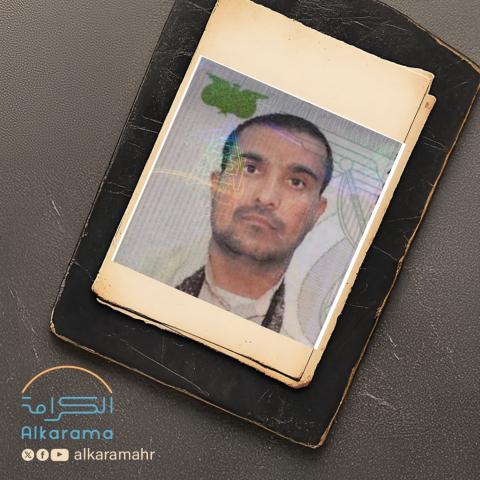
Alkarama has learned that a Saudi court sentenced Yemeni pilgrim Mahmood Hamid Qaid Al-Broushi to 18 years in prison. He has been detained in Dhahban prison since April 2022 under fabricated charges and subjected to a trial lacking fairness, according to testimonies from the victim’s relatives.
Al-Broushi was one of four Yemenis arrested in April 2022 while traveling to Saudi Arabia for Umrah on valid visas. Alkarama referred their case to the United Nations Special Procedures in May 2023. Three of them were released and returned to Sana’a in June 2023, but Al-Broushi remains in arbitrary detention.
Alkarama’s director, Rachid Mesli, stated, “The unjust sentences handed down by Saudi Arabia’s Specialized Criminal Court against victims of arbitrary detention clearly demonstrate the politicization of the judiciary and the lack of commitment to justice standards within the Kingdom’s judicial system.”
He added, “From the cases we have monitored, it is evident that Saudi authorities issue harsh sentences either to retaliate against victims and their families for seeking justice through UN human rights mechanisms during their period of arbitrary detention or enforced disappearance or as a way to cover up the series of violations they faced. This evasion of accountability is particularly aimed at individuals who have peacefully expressed their views on public matters in the Kingdom.”
The Case of Al-Broushi
Mahmood Hamid Qaid Al-Broushi was brought to trial in mid-September 2023 before the Specialized Criminal Court in Riyadh on charges of belonging to the Houthi group (known as Ansar Allah), supporting them, and committing cybercrimes. Details were withheld, and he was denied access to the indictment.
In mid-April, the court convicted him on three charges: Membership in the Houthi group, punishable by three years in prison; insulting the Saudi king and crown prince, punishable by five years and committing cybercrimes, punishable by ten years, based on allegations of WhatsApp messages found on the phone of one of his companions who was later released.
Al-Broushi’s family reported that they were not allowed access to a copy of the court’s verdict or the appellate decision, which upheld the initial ruling about a month after it was issued.
According to relatives, the last visit permitted after considerable effort was on September 15, 2024. His last allowed phone call was in April 2022, with no further communication despite numerous requests from him and his family to the prison administration.
Yemenis in Saudi Prisons
Mahmood Hamid Qaid Al-Broushi is just one of many Yemenis who have faced arbitrary detention and unjust trials after entering Saudi Arabia legally but encountering repression and violations, leading to harsh prison sentences following trials that fall short of basic justice standards.
In this context, Alkarama recalls the case of Mohammed Al-Wadei, a Yemeni preacher detained since October 2022 and serving a 19-year sentence under anti-terrorism and cybercrime laws. His imprisonment is linked to his reposting two Facebook posts about the Saudi-Turkish dispute following the assassination of Saudi journalist Jamal Khashoggi in the Saudi consulate in Istanbul in October 2018.
Increasing Arrests of Pilgrims
Alkarama expresses particular concern over the repeated arrests of pilgrims in recent years. Among the cases it has monitored is the arrest of two Uyghur pilgrims of Chinese origin residing in Istanbul, Turkiye: Waili Aimoudoula and Ruze Nuermaimaiti.
Since their transfer to Riyadh in March 2023, their families have received no news about them. This prompted Alkarama to issue an urgent appeal to the UN Working Group on Enforced or Involuntary Disappearances on May 10, 2023, to shed light on their fate.
Alkarama reiterates the need to respect religious freedom and the safety of pilgrimage to Islamic holy sites in Saudi Arabia and will not hesitate to raise this issue before various UN human rights bodies and mechanisms.
